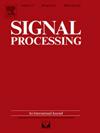Adaptive compressed learning boosts both efficiency and utility of differentially private federated learning
IF 3.4
2区 工程技术
Q2 ENGINEERING, ELECTRICAL & ELECTRONIC
引用次数: 0
Abstract
In the federated learning (FL) research field, current research is confronted with several pivotal challenges, e.g., data privacy, model utility and communication efficiency. Furthermore, these challenges are further amplified by statistical data heterogeneous in the FL system. Thus, a novel Communication-efficient and Utility-assured Gaussian differential privacy-based Personalized Federated Adaptive Compressed Learning method, called CUG-PFACL, is proposed. Specifically, an end-to-end local adaptive compressed learning strategy is designed, including three crucial modules, namely the measurement matrix, the personalized compressed data transformation and the local model. Especially, jointly training the measurement matrix module and the personalized compressed data transformation module can mitigate the inherent statistical heterogeneity while preserving all important characteristics of the compressed private data of each local client, and alleviate the additional heterogeneity induced by Gaussian differential privacy in each global communication round. Numerous experimental simulation and comparisons demonstrate that CUG-PFACL has three notable advantages: data privacy guarantee, enhanced personalized model utility and high-efficient communication.
自适应压缩学习提高了差异化私人联合学习的效率和效用
在联合学习(FL)研究领域,当前的研究面临着几个关键挑战,如数据隐私、模型实用性和通信效率。此外,FL 系统中统计数据的异质性进一步加剧了这些挑战。因此,我们提出了一种基于高斯差分隐私的个性化联合自适应压缩学习方法,即 CUG-PFACL。具体来说,设计了一种端到端的本地自适应压缩学习策略,包括三个关键模块,即测量矩阵、个性化压缩数据转换和本地模型。其中,联合训练测量矩阵模块和个性化压缩数据转换模块可以在保留每个本地客户端压缩隐私数据所有重要特征的同时,缓解固有的统计异质性,并减轻每轮全局通信中高斯差分隐私所引起的额外异质性。大量的实验模拟和比较证明,CUG-PFACL 具有三个显著优势:数据隐私保证、增强的个性化模型效用和高效通信。
本文章由计算机程序翻译,如有差异,请以英文原文为准。
求助全文
约1分钟内获得全文
求助全文
来源期刊

Signal Processing
工程技术-工程:电子与电气
CiteScore
9.20
自引率
9.10%
发文量
309
审稿时长
41 days
期刊介绍:
Signal Processing incorporates all aspects of the theory and practice of signal processing. It features original research work, tutorial and review articles, and accounts of practical developments. It is intended for a rapid dissemination of knowledge and experience to engineers and scientists working in the research, development or practical application of signal processing.
Subject areas covered by the journal include: Signal Theory; Stochastic Processes; Detection and Estimation; Spectral Analysis; Filtering; Signal Processing Systems; Software Developments; Image Processing; Pattern Recognition; Optical Signal Processing; Digital Signal Processing; Multi-dimensional Signal Processing; Communication Signal Processing; Biomedical Signal Processing; Geophysical and Astrophysical Signal Processing; Earth Resources Signal Processing; Acoustic and Vibration Signal Processing; Data Processing; Remote Sensing; Signal Processing Technology; Radar Signal Processing; Sonar Signal Processing; Industrial Applications; New Applications.
 求助内容:
求助内容: 应助结果提醒方式:
应助结果提醒方式:


